65,202
社区成员
 发帖
发帖 与我相关
与我相关 我的任务
我的任务 分享
分享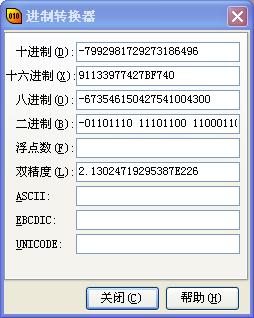
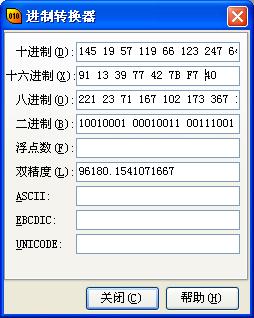
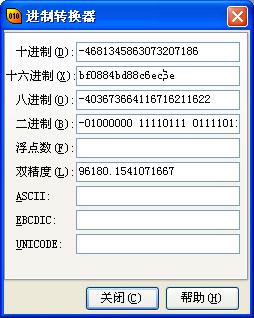
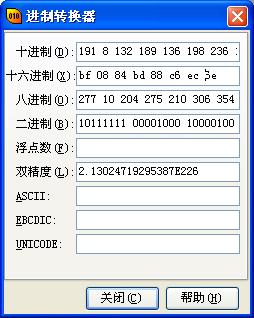
char YA_HEX[20] = "bf0884bd88c6ec6e";
double YA_Num;
int (&x)[2] = (int(&)[2])YA_Num;
sscanf(YA_HEX, "%08x", &x[0]);
sscanf(YA_HEX + 8, "%08x", &x[1]);
x[0] = htonl(x[0]);
x[1] = htonl(x[1]);
printf("%f", YA_Num);
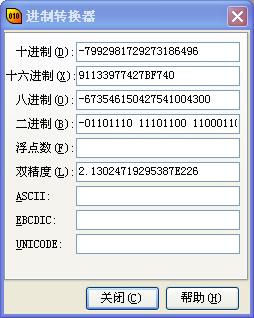
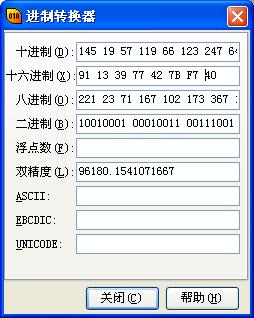
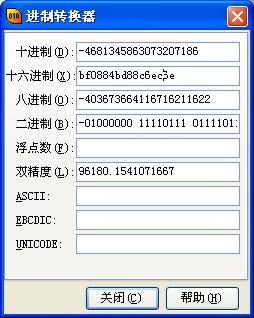
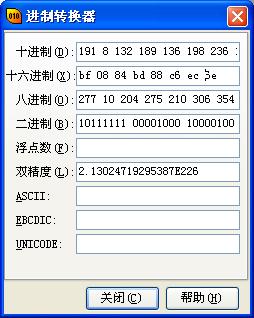
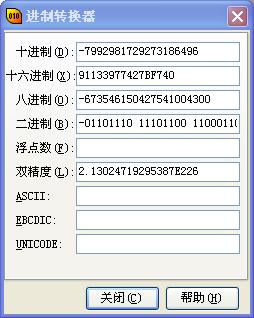
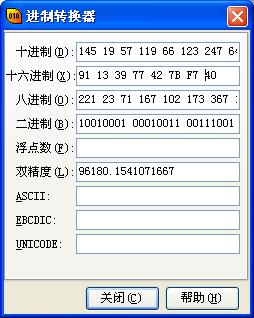

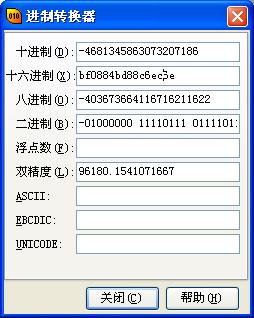
#include <stdio.h>
int main() {
char YA_HEX[20] = "91133977427BF740";
double YA_Num;
char *p;
int i,v;
p=(char *)&YA_Num;
for (i=0;i<8;i++) {
sscanf(YA_HEX+i*2, "%2x", &v);
p[i]=(char)v;
}
printf("%.15lg", YA_Num);
return 0;
}
//96180.1541071667#include <stdio.h>
int main() {
char YA_HEX[20] = "bf0884bd88c6ec6e";
double YA_Num;
char *p;
int i,v;
p=(char *)&YA_Num;
for (i=0;i<8;i++) {
sscanf(YA_HEX+i*2, "%2x", &v);
p[i]=(char)v;
}
printf("%.15lg", YA_Num);
return 0;
}
//2.13024719295387e+226
//
char YA_HEX[20] = "bf0884bd88c6ec6e";
double YA_Num;
int (&x)[2] = (int(&)[2])YA_Num;
sscanf(YA_HEX, "%08x", &x[0]);
sscanf(YA_HEX + 8, "%08x", &x[1]);
x[0] = htonl(x[0]);
x[1] = htonl(x[1]);
printf("%f", YA_Num);
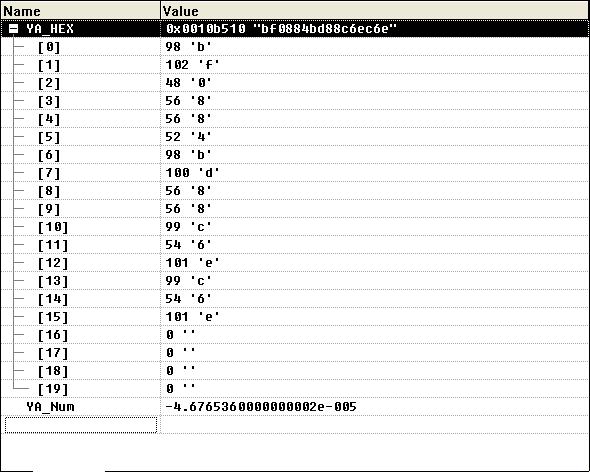 然后你那个结果是我拿数制转换的软件看bf 08 84 bd 88 c6 ec 6e转成2.13024719295387E226,
bf0884bd88c6ec6e转成96180.1541071667。。。这个问题很奇怪啊。。。
[/quote]
在 VC 的调试状态, 断到 YA_Num 已经读取以后, 打开调试->窗口->内存 XX, 然后在地址栏输入 &YA_Num
然后你那个结果是我拿数制转换的软件看bf 08 84 bd 88 c6 ec 6e转成2.13024719295387E226,
bf0884bd88c6ec6e转成96180.1541071667。。。这个问题很奇怪啊。。。
[/quote]
在 VC 的调试状态, 断到 YA_Num 已经读取以后, 打开调试->窗口->内存 XX, 然后在地址栏输入 &YA_Num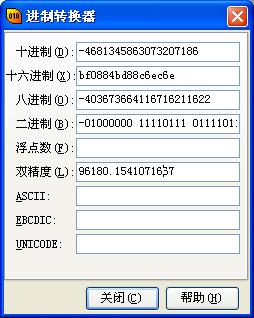
char YA_HEX[20] = "bf0884bd88c6ec6e";
double YA_Num;
int (&x)[2] = (int(&)[2])YA_Num;
sscanf(YA_HEX, "%08x", &x[0]);
sscanf(YA_HEX + 8, "%08x", &x[1]);
x[0] = htonl(x[0]);
x[1] = htonl(x[1]);
printf("%f", YA_Num);
